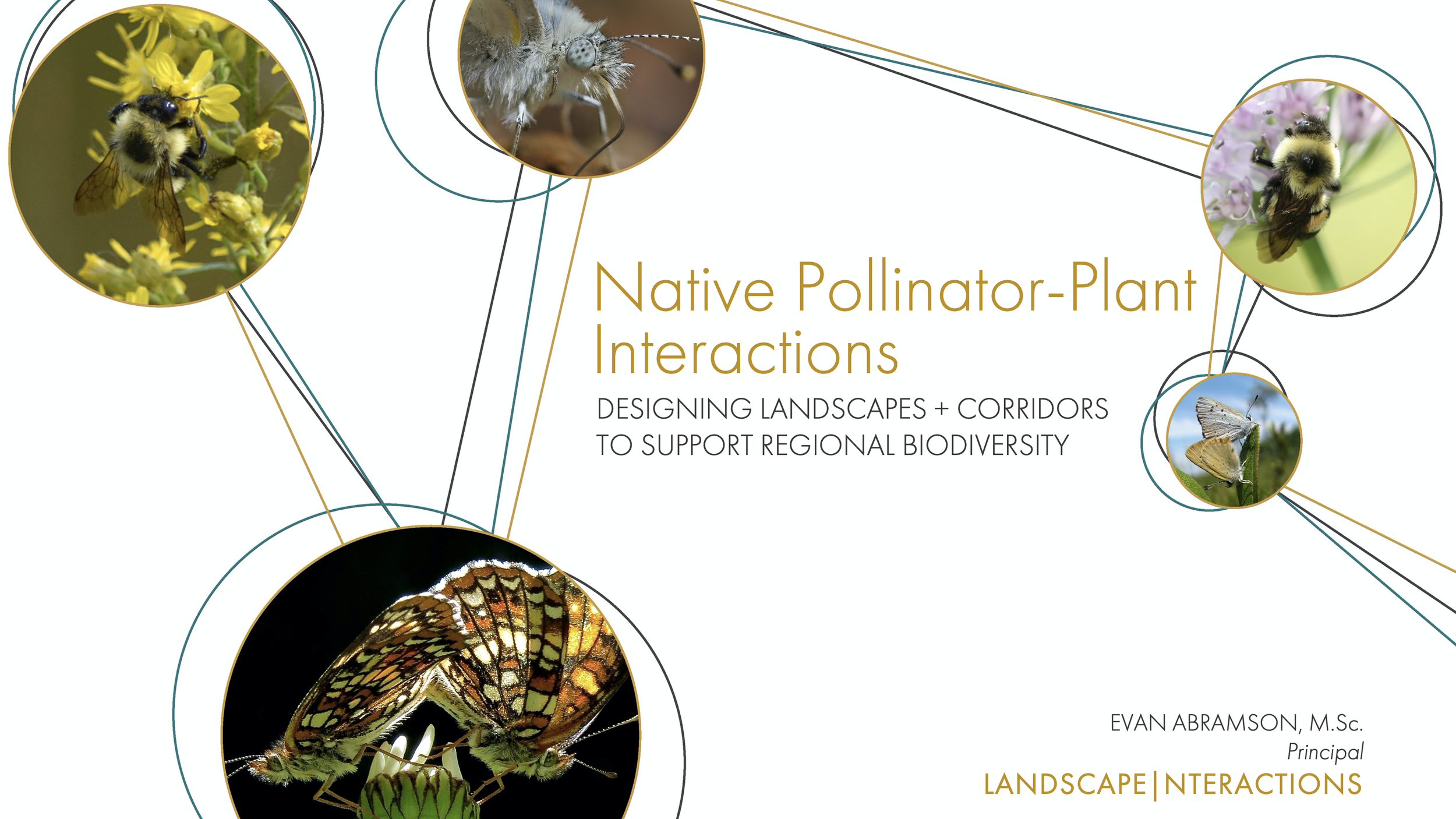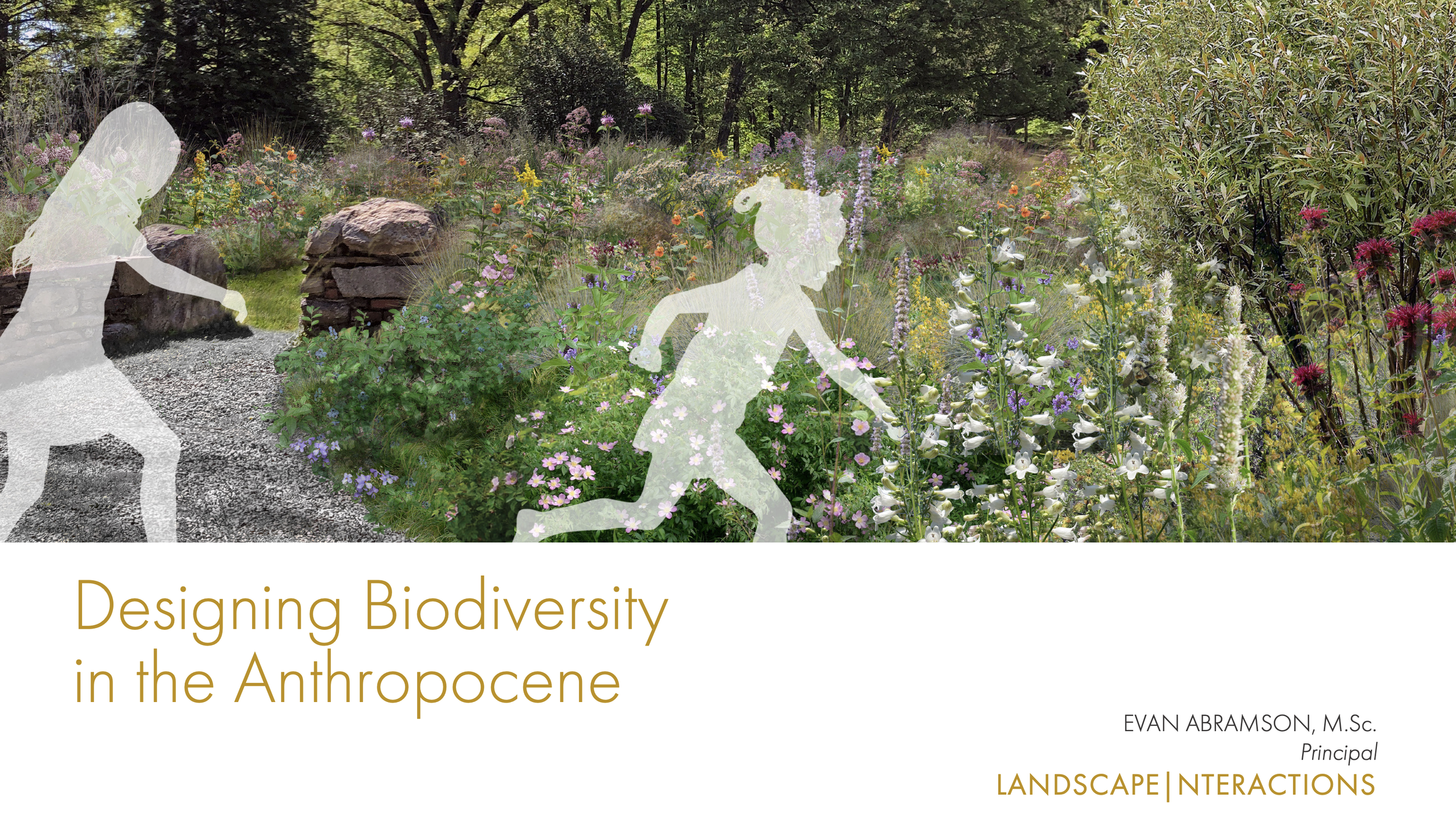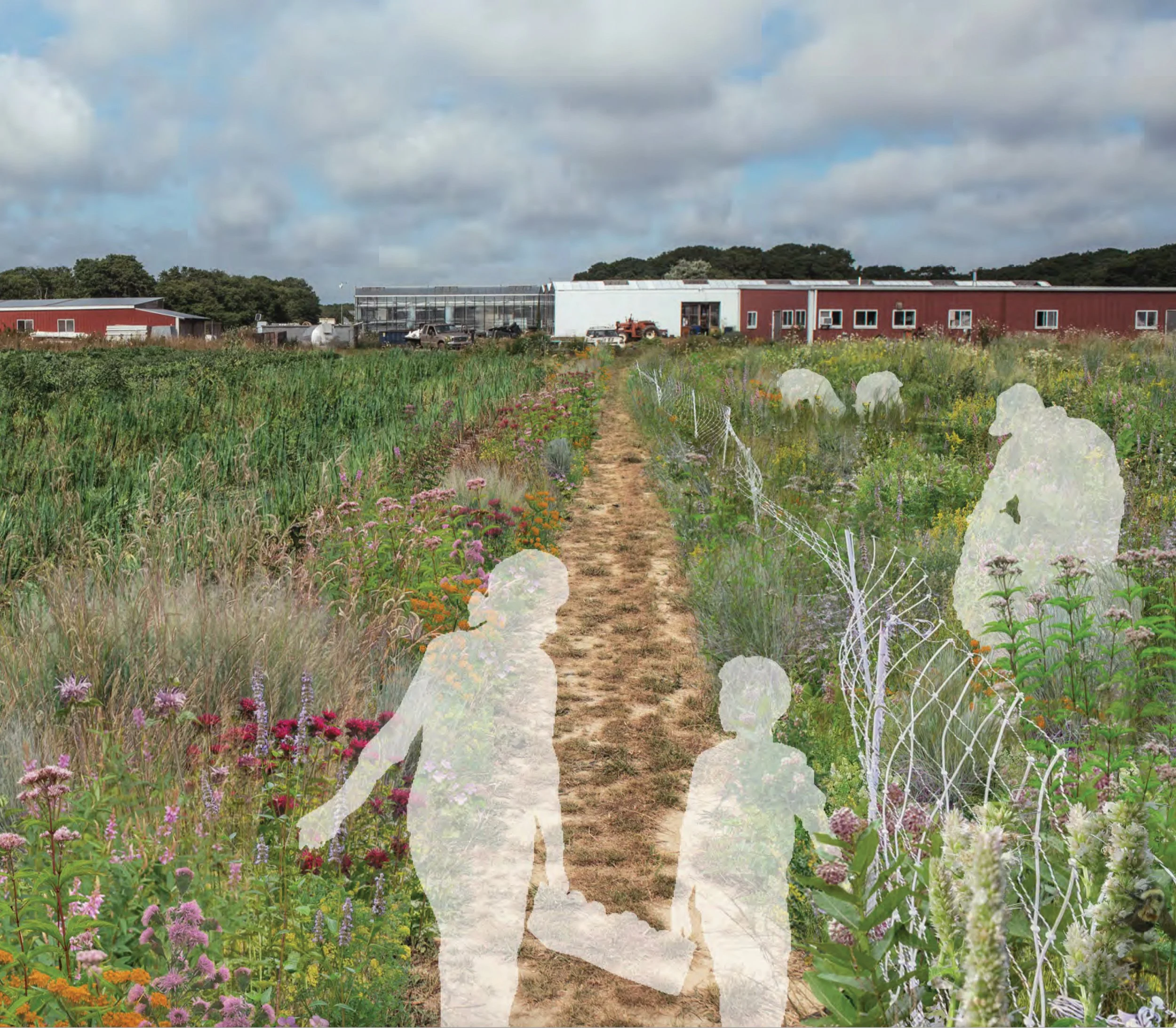Presentations by Evan Abramson
Native pollinator-plant interactions
Discover the key role that biodiversity plays in solving the climate crisis. Learn why pollinator habitat restoration is the single most important consideration in designing resilient landscapes in the Northeast. In this workshop, participants will explore scalable, replicable models of habitat design, restoration and maintenance; for professional practice, public education and stakeholder participation.
Designing biodiversity in the Anthropocene
Gardeners, farmers, landowners and designers have a vital role to play in strengthening, expanding and enhancing regional biodiversity, ecological health and climate resilience. On working lands, conservation properties, front lawns and backyard gardens, functionally diverse native pollinator habitat can serve as a building block for linking intact natural areas across a fragmented landscape. But what to plant, when to mow, where to focus on first and how to measure the results? Evan Abramson presents a series of case studies from project sites across the region, all created specifically to support at-risk species. An interactive discussion with audience members follows.
farming for biodiversity at island grown farm
The product of a year-long collaboration between farmers and staff at Island Grown Farm and designers, planners and scientists at Landscape Interactions, Farming for Biodiversity is a comprehensive guide for creating and maintaining functionally diverse habitat on farmscapes across Martha’s Vineyard, to support native bee, butterfly and moth species at the greatest risk of local extinction. In this presentation, Landscape Designer Evan Abramson and Regenerative Farm Manager Mary Sage Napolitan will walk audience members through the nuts and bolts of researching, designing and implementing this innovative project on a working landscape.
Presentations by Robert Gegear
From data to diversity: Restoring native plant-pollinator systems with citizen science
Over the past two decades, human activity has significantly degraded the integrity of pollination systems. Many historically abundant native plant and pollinator species are now locally extinct, with others soon to follow if immediate action is not taken. The loss of these plant-pollinator systems poses a significant threat to the diversity and function of natural ecosystems, due to the fundamental role that pollination products play in supporting wildlife across trophic levels. Despite this, we currently lack the ecological data required to develop effective conservation and restoration strategies for pollination systems at risk.
The Beecology Project aims to fill this gap by recruiting citizen scientists from across New England to collect and submit observations of native pollinator-plant interactions using the Beecology web app. Since 2018, Beecology has significantly advanced bumblebee conservation efforts by providing data-driven, species-level recommendations for native pollinator habitat creation and restoration. This has allowed members of the general public to not only improve the quality of habitat, but also help determine the causes of wild pollinator decline.
The People-Pollinator-Biodiversity Connection
Is the pollinator habitat we are creating effective? This talk by Dr. Robert Gegear of UMass-Dartmouth leads listeners to a much more accurate understanding of plant-pollinator interactions. This knowledge allows us to support threatened bees and other species with their preferred plants and habitat requirements. Rob’s Beecology app has informed his research on bumblebees, and we will teach participants to use the app to track species distribution and behavior throughout the region.


